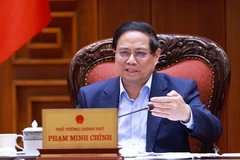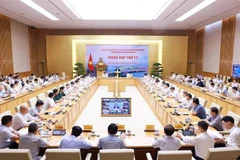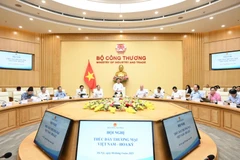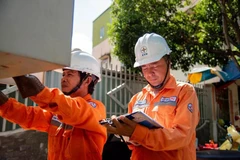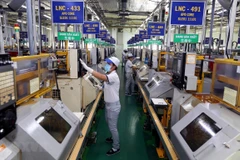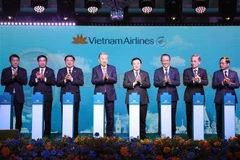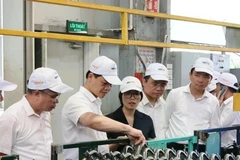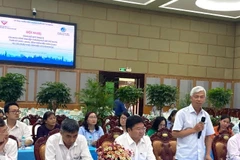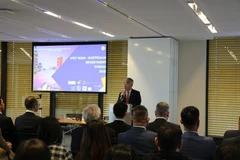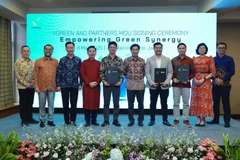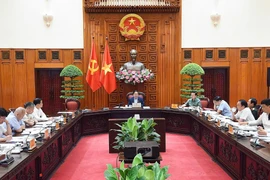* Could you tell us more about economic relations between Vietnam and Germany?
The strategic partnership between our two countries was formed in 2011by Chancellor Angela Merkel and Prime Minister Nguyen Tan Dung insigning the " Declaration of Hanoi " . This declaration has laid avital foundation for the strengthening of our bilateral cooperation inall fields.
In 2012, trade turnover between Vietnamand Germany surpassed 9 billion USD, an increase of 22 percent comparedto 2011. Vietnamese exports to Germany rose by 27.7 percent, reaching6.75 billion USD while imports from Germany rose by 9.9 percent,reaching 2.49 billion USD.
I strongly believe thatthese figures will increase in the future, as Vietnam and the EU plan tosign an FTA on goods, services, investment and protection ofintellectual property rights by 2014. Once the FTA takes effect, tariffson agricultural products, footwear, garment and other goods will be cutto zero.
Total registered capital from Germancompanies reached more than 1 billion USD, bringing Germany to 22ndposition in nations and territories investing in Vietnam. Additionalcapital from German companies reached 188.77 million USD in 2012.
In terms of development cooperation, ODA (Official DevelopmentAssistance) capital that Germany committed as new aid for Vietnam in the2012-2013 period reached 375.7 million USD, with almost all projectsfocusing on three key fields, including vocational training,environmental protection and energy security. This will help Vietnamimplement its green growth strategy, and ensure the nation’s developmentin accordance with the environment and social needs.
* What are your comments on the efficiency of bilateral cooperation projects?
I would like to mention the German House in Ho Chi Minh City, whichserves as a symbol for the strong development of our bilateral ties. TheGerman House will be built on a very attractive plot in the centre ofHo Chi Minh City by a private investor. After the German House is built,the German Consulate General will move into the building together withGerman companies and cultural institutions. The house will become ameeting place for the German and Vietnamese.
Germanfirms are also involved in extending the city rail network in Ho ChiMinh City. This project receives financial support from the AsianDevelopment Bank (ADB), the German Development Bank (KfW) and theEuropean Investment Bank (EIB) with a total capital of 1.3 billion USD,including 340 million USD from Germany.
Theproject’s purpose is to create a safe and convenient transport systemfor passengers as well as enhance economic growth of the city.
Our collaboration in the field of vocational training is developingwell. The German model on linking universities and enterprises remainspopular and successful in our country and the world. In Germany,students study in school and at the same time they are trained in abusiness.
I believe that this model can also benefitVietnam. In January 2013, Bosh Vietnam and the Lilama 2 Technical andTechnological College concluded a cooperation agreement. In March, aMemorandum of Understanding on vocational training was signed betweenthe two governments. This MoU aimed at improving the skills of theVietnamese labour force in the context of international integration.
* On the occasion of the 38th anniversary of theestablishment of diplomatic relations between Vietnam and Germany, whatmessages would you like to convey to our readers?
The establishment of our strategic partnership in 2011 has opened a newchapter for our bilateral ties in all fields, especially trade,investment and development cooperation. As you have witnessed in thepast two years, many substantial and impressive achievements werereached. This is proof for the steady growth of ties between our twonations. Vietnam wants to become an industrialised country by 2020 andGermany, with its knowledge and expertise, always supports Vietnam inthe implementation process.
The Embassy of theFederal Republic of Germany in Vietnam will work closely together withVietnamese partners to efficiently implement what the two sidescommitted to in the " Declaration of Hanoi " in order to benefitboth our countries.-VNA
